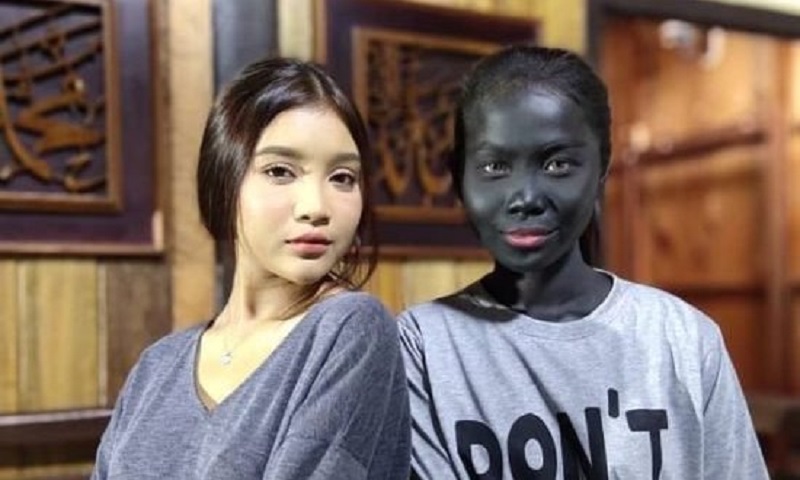PETALING JAYA, June 22 — Malaysian production company Zeel Production says the use of blackface in its drama Dayang Senandung has “nothing to do with race” and does not “violate human rights.”
In a statement posted to Instagram, Zeel Production said they have no plans to stop filming or reshoot certain scenes despite receiving criticism for promoting colourism and racism in the show.
They labelled the backlash over Dayang Senandung star Wani Kayrie’s makeup as an “unnecessary uproar” and claimed that their rendition of the Malay legend will be an uplifting tale about going against the odds and pursuing one’s dreams.
“The new 2020 version of Dayang Senandung highlights the empowerment of achieving our goals regardless of skin colour which is not supposed to be perceived as a boundary.
“In the drama, Dayang is loved by everyone except her mother and stepsister who are always jealous of her.
“She is even loved by two men who accept her just the way she is. This is the symbolism that (the story) wants to tell, that despite your different skin colour, we are all the same,” Zeel Production wrote.
Their statement failed to resonate with Instagram commenters who said the folklore of Dayang Senandung is one that is best left in the past as it stigmatises dark skin by associating it with black magic and ugliness.
“Although I understand it’s trying to teach self-love, being dark-skinned is never a ‘curse’ to begin with.
“It’s just folklore and some traditions should be lost because it was built on immoral values and beliefs,” said one user.
Another user said that a better modern-day rendition of Dayang Senandung would include casting a dark-skinned actress for the starring role and rewriting the ending where the curse is lifted and her skin becomes lighter.
“Use the chance to rewrite the narrative to address the issues in our society of how dark skin is often seen as a curse or undesirable, actually make it a commentary of the colourist and racist incidents in Malaysia.
“Folk stories can change. Art and culture and storytelling are powerful tools to change minds and values,” the user wrote.
Wani plays the lead role of Dayang in the drama adaptation of the 1965 film Dayang Senandung, which draws inspiration from a Malay folktale about a princess who is cursed with black skin at birth by an angry commoner wrongfully sentenced to death by the sultan.
The 20-year-old’s makeup sparked outrage on social media after videos of her on Instagram and TikTok went viral.
In one Instagram Story, Wani appears in blackface while repeatedly asking her companions “Am I pretty?” and lamenting that the camera filter had failed to recognise her features because her skin was “too dark.”
A Change.org petition calling for the production of Dayang Senandung to be halted has garnered 23,900 signatures as of Monday afternoon.

Blackface first originated in minstrel performances, an American form of entertainment that gained prominence in the 19th century.
White actors would paint their faces black to mock African Americans while depicting racist tropes that showed black people as lazy, uneducated, superstitious, villainous, and hypersexual.
While blackface largely died out in the United States after the civil rights movement in the 1960s, it’s still used in various countries around the world as a tool to lampoon people with dark skin.
Canadian prime minister Justin Trudeau was exposed wearing brownface during an Arabian Nights-themed costume party in 2001 while British TV show Little Britain was recently removed from BBC iPlayer, Netflix, and BritBox after it got called out for showing white comedians in blackface.
Meanwhile in Asia, a Japanese comedian came under fire in 2018 after donning blackface to parody African American actor Eddie Murphy.
Chinese state broadcaster CCTV came under fire that same year for putting an actress in blackface and having her wear fake buttocks to portray an African woman during its Spring Festival Gala variety show for Chinese New Year.
Closer to home, blackface was used in a Watsons Malaysia advertisement in 2017 that also referenced the Dayang Senandung legend and showed a wealthy prince who was disgusted by a woman’s love because she had dark skin.
The woman then transforms to become “beautiful” again when her skin magically becomes fairer.






















